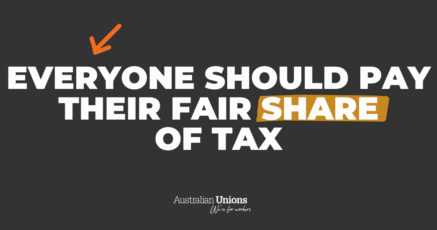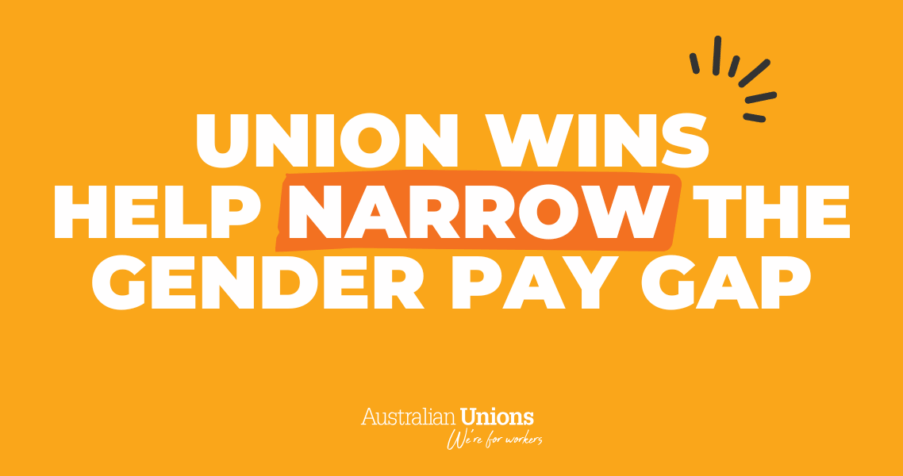How are you coping with the cost of living?
ACTU Secretary Sally McManus posed this question on Twitter last week and met with some harrowing responses.
Tell me – how are you coping with the rising cost of living? What’s your experience, are you feeling it?#economicmanagement
— Sally McManus (@sallymcmanus) March 3, 2022
You’d think in a developed country like Australia that being able to eat would be easy, but many workers are counting out the cents for groceries.
Petrol $1.84 in Cairns. Supermarket shelves bare. Weekly grocery bill up 60% since new year but buying 30% less stuff. Not coping well. Insecure employment
— Richard (@Rdonair) March 4, 2022
Our family block of tasty cheese that we go through every week went up in price by 14% the other day. Other things we regularly buy have increased noticeably. Seems a bit extreme to me?
— Still can’t sleep 🌻💉💉💉 (@mangopavlova) March 4, 2022
And after two years of weak Morrison initiative of financial support during the pandemic, our savings are running dry.
Have stopped going out, hardly ever buy meat, have many sleepless nights worrying if I can make it to payday with only coins in my purse. Despair for my old age as I have zero savings and no assets or equity.
— Mistress M (@MirabowMistress) March 4, 2022
I had to put a third of the shopping back at IGA because the cost exceeded my finances.
— ceemcsee (@ceemcsee) March 4, 2022
My regular old cheddar cheese had gone up by $1.50. Most other items had too.
— TANGLED SILK 🌻 🏳️🌈🎗 ☮ ♀️ 🐀 🌱🐨 (@TangledSilk) March 4, 2022
Skyrocketing petrol prices have also made essential commutes to work or school a costly action, particularly for those who rely on their car for work.
Just paid more than I ever have in my life to fill my car with petrol. I work for a supermarket and part of my job is to put up tickets. The rise in prices for everything has been astronomical.
— Patricia Fennell (@PatFennell1968) March 4, 2022
The cost of Petrol is very telling, I have to do a lot of driving as a Carer and helping with the School runs so my daughter can work, in just over a week, I spent $90, usually I can get away with spending $25… other things had to give so I could do what I have too.
— Cathy Harris Norman (@33andme) March 4, 2022
Of course, these difficulties don’t just appear from thin air. Years and years of government economic mismanagement have stacked up.
Insecure work, insufficient disability support, and stagnating wages have left workers with little hope of keeping up with daily prices.
I’m an ex-serviceman on a disability pension, which is barely enough to pay my rent. Whenever I can’t work due to injury, illness, or inclement weather, I have go into debt to pay for food & utilities.
— Quoll Patrol (@quollpatrol) March 4, 2022
Teacher here. Our pay is not even in line with inflation. A four year tertiary trained career is struggling to keep up with the cost of living… not sure how other jobs can afford to 🤷🏼♀️
— Sarah (@Sjgalloway4) March 4, 2022
At 55 single and a women, I expect to be living on the street very soon. Even though I’m working f/t. 3/4 of wage goes to living. I know of others in this bracket living on street with phd
— Campbell (@dogmaa54) March 4, 2022
With inflation now outstripping pay rises, it’s no wonder so many workers are doing it tough.
What this means is wages have gone downhill, and now we have even less purchasing power than before.
Today’s cost of living fact:
— Sally McManus (@sallymcmanus) March 7, 2022
A worker on $68 000 pa (average earnings for all workers) had their pay CUT in real terms by $832 last year.
The Morrison Government could have prevented these precarious situations.
Instead, they have chosen to support their own political interests over workers and their loved ones. Every. Single. Time.
But union members continue, as we always have, to drive change no matter the political forces we may face.
We are made of almost 2 million workers coming together to get things done. We are always more powerful in numbers and that is why union members enjoy higher wages than non-members.






SHARE:
“Living on the street” – workers share stories of wage stagnation and rising costs of living